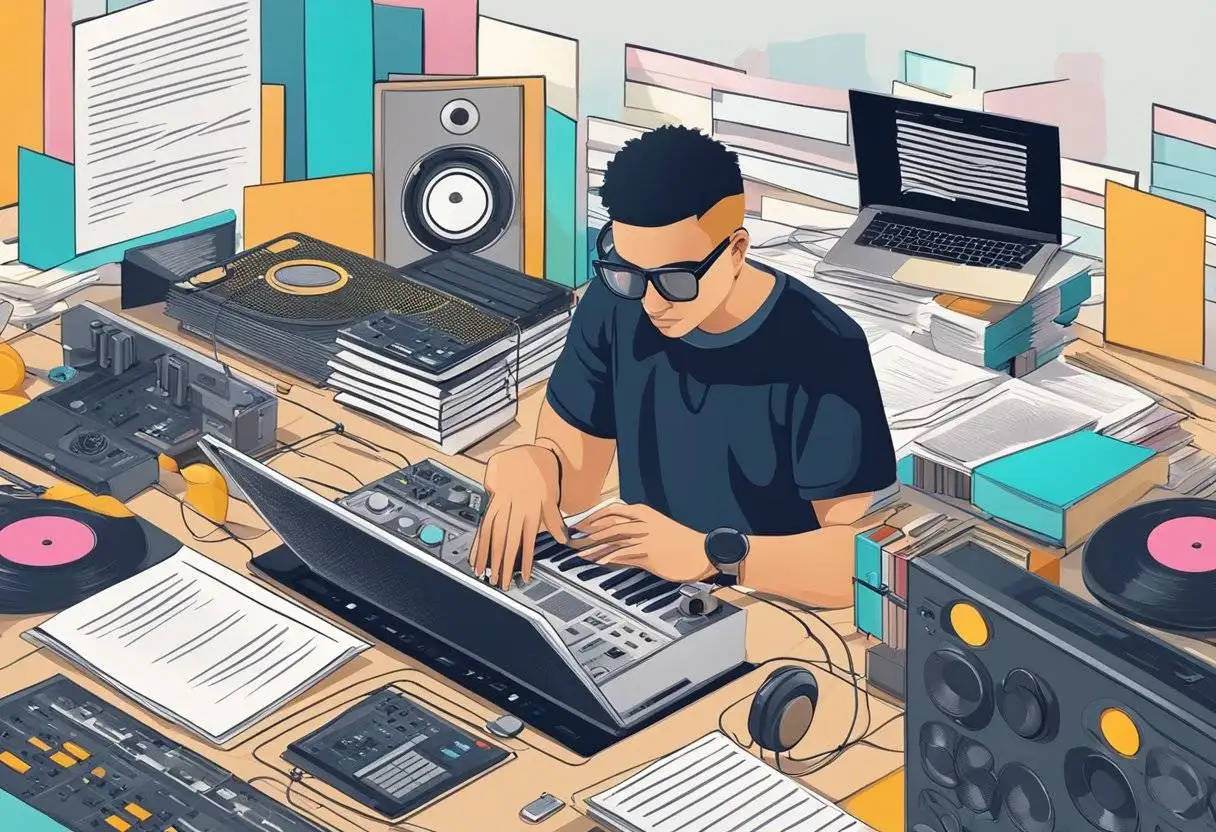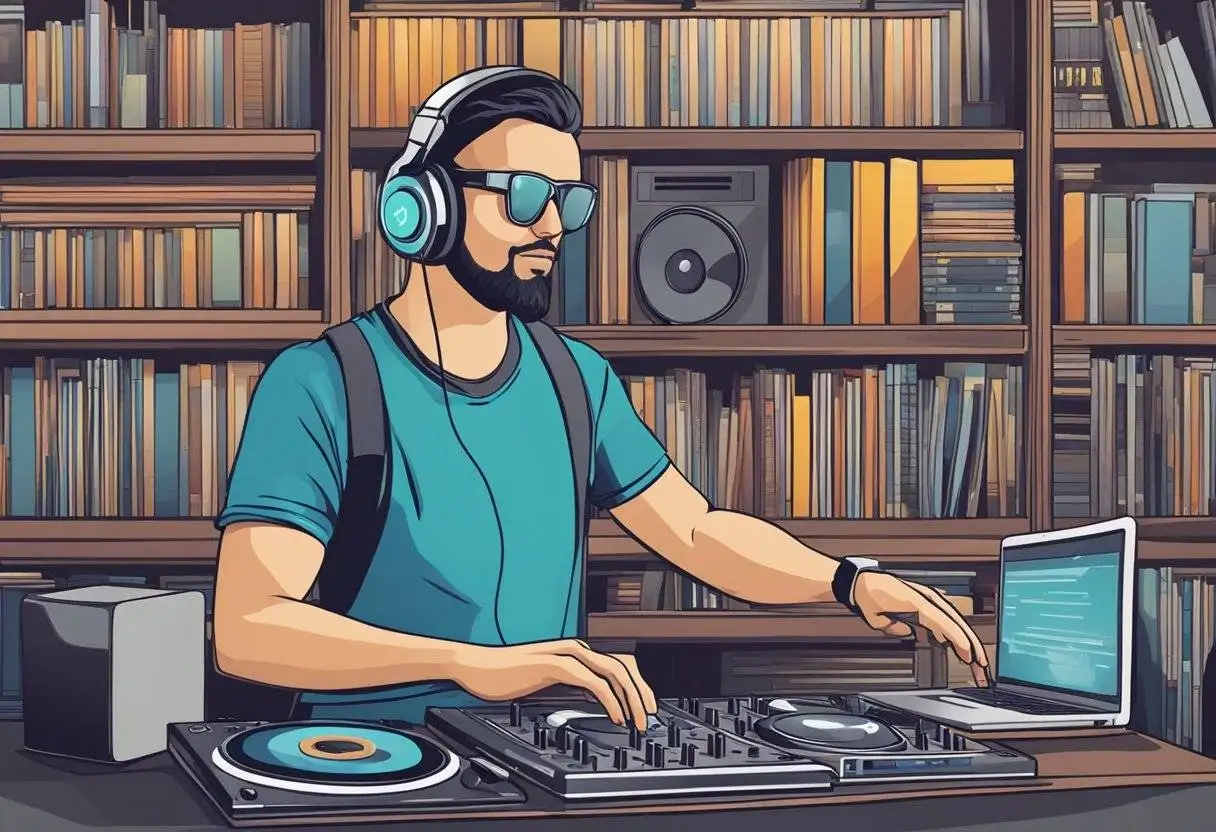In recent years, the digital revolution has transformed the landscape of music sourcing for DJs. As a DJ myself, I have witnessed a significant shift from traditional vinyl and CDJ setups to an era where streaming services and digital downloads reign supreme. For DJs looking to keep their sets fresh and dynamic, accessing a wide variety of music without breaking the bank is crucial. Fortunately, there are numerous legitimate avenues to obtain free music for DJ sets, from undiscovered tracks by independent artists eagerly sharing their work for exposure, to platforms designed explicitly for DJs to download tracks that are both free and legal.

Moreover, understanding the legal implications of using music in a public setting is paramount. In my journey as a DJ, navigating the ethical and legal aspects of sourcing music has been just as important as finding the tracks themselves. I’ve engaged with record pools and DJ software that offer free downloads in exchange for feedback or promotional support, creating a symbiotic relationship between artists, record labels, and DJs. Networking within DJ communities often leads to free track exchanges, allowing for the discovery of unique sounds while fostering a sense of community and collaboration.
Key Takeaways
- DJs can obtain free, legal music through various online platforms and communities.
- It’s important to respect legal and ethical considerations when sourcing music.
- Networking with artists and using DJ-focused services can provide access to unique tracks.
Legitimate Sources of Free DJ Music
In my experience, finding free music for DJing that’s both legal and high-quality can be challenging, but there are several reputable platforms where I can source such tracks. SoundCloud offers independent artists a place to share their music, many of whom allow downloads for free. The platform’s extensive collection covers various genres, making it a valuable resource for DJs looking to freshen up their sets.
Free Music Archive is another fantastic site for discovering a wide array of free tunes for DJ purposes. The music here is often available for free download, under licenses that typically allow for creative use in mixes and performances.
Similarly, Bandcamp provides access to a range of music from artists who sometimes offer free tracks as part of promotions, or as a way to gain exposure. The high-quality downloads are especially useful when I’m looking for specific sounds or tracks that are less mainstream.
For a more visual approach, YouTube stands as a primary source. Although not all music on YouTube is downloadable, the platform serves as an excellent discovery tool for new music which is sometimes available for free download through links provided by the content creator.
In the realm of music stores, Jamendo and CCTrax offer a curated selection of free content that is legal to download. These sites are convenient for finding and exploring new music without the worry of copyright infringement.
Beyond individual platforms, various subscription-based DJ Pools like Club Killers and Digital DJ Pool often have a selection of free downloads available. These pools, including DJCity and Promo Only, require membership, but they often offer free tracks as part of promotional deals or trials.
Lastly, paying attention to Social Media Platforms can yield a surprising amount of free music. Artists frequently share free downloads on these platforms to increase their visibility, and they’re a great indicator of trending sounds and emerging genres. It’s important for me to stay active on social media to capitalize on these opportunities.
In my pursuit of free DJ music, I ensure that each download is permitted by the rights holders—this is not just ethical, but it also secures the legality of my music collection.

When I’m sourcing music freely, the legalities are paramount. As a DJ, it’s critical to sidestep copyright infringement and respect the work of artists, labels, and record companies. The vibrant ecosystem of music production thrives on the fair use of content, thus I adhere strictly to legal sources.
DJ Pools: I take advantage of reputable DJ pools, monthly subscription platforms that grant access to extensive music libraries. For a clearer understanding, these are akin to wholesale clubs for DJs, providing pre-cleared tracks especially for mixing and broadcasting. They form a symbiotic relationship with record labels, ensuring a win-win for both artists and DJs.
Creative Commons: Tracks labelled under Creative Commons offer another legal avenue to curate my setlists. Artists who use music production software to craft their compositions may opt to release their work with various CC licenses, some allowing commercial use as long as proper attribution is given.
Direct from the Artist or Label: Many forward-thinking artists and smaller independent labels release tracks directly to DJs free of charge, seeking exposure and club play. By building relationships with these entities, I ensure a supply of original content while supporting upcoming talent.
Here is a quick breakdown:
- DJ Pools: Legal, Subscription-based, Vast selection
- Creative Commons: Legal with Attribution, Varied licenses, Artist-direct
- Direct Contact: Personal relationship, Free promos, Supports new artists
My approach is straightforward and ethical; by valuing the creative rights inherent in the music industry, I build a repertoire that’s both rich in diversity and clean in conscience.
Utilizing Record Pools and DJ Software
As a DJ, my first port of call for sourcing fresh tracks is often through various record pools. These are subscription-based services that provide a broad range of music specifically catered to DJs. BPM Supreme and ZIPDJ rank high on my list for their extensive libraries that cater to different genres. By paying a membership fee, I gain access to a multitude of tracks that are both current and popular, saving me the legwork of scouting for individual tunes.
In addition to traditional record pools, there’s also a range of DJ pools, which are similar but sometimes offer more specialized selections. For instance, when I’m hunting for remixes or less mainstream genres, I might dive into a specific DJ record pool that aligns with my set’s vibe.
When it comes to DJ software, my toolkit isn’t complete without Rekordbox. It’s an industry staple for managing and preparing my music library for DJ sets. I use Rekordbox’s features to organize tracks, set cues, and analyze BPM, making seamless blends a cinch during performances.
For producers and labels that are a tad more underground, I head to platforms like Traxsource and Beatport. These are marketplaces that offer high-quality, DJ-friendly tracks that sometimes aren’t available in record pools. Boomkat is another resource I tap into for avant-garde and experimental sounds that set my sets apart.
By coupling these resources with my DJ software, I ensure my performances are dynamic and that my selections are on-point. With thorough preparation and a keen eye for musical curation, these tools empower me to deliver a memorable auditory experience for my audience.
Community and Networking for Access to Free Tracks
Networking within the DJ community plays a crucial role in accessing free music tracks. I use social media platforms such as Facebook, Instagram, and Twitter to connect with music producers and independent musicians. By engaging with their content and fostering relationships, I often gain access to exclusive tracks or early releases.
I also participate in DJ forums and online resources where curated playlists are shared. This exposure to a wide variety of music allows me to discover original sounds by independent artist hubs. Here’s how I usually approach it:
- Twitter: I follow well-known DJs and producers who frequently share or retweet available tracks.
- Facebook: Joining DJ-specific groups helps me find posts by artists promoting their latest free tracks.
- Instagram: I use this platform to watch artists’ Stories where they might offer a limited download or a sample pack.
I keep an eye on local stores and physical independent artist hubs where I can meet with other DJs and exchange music. In my experience, word-of-mouth recommendations are invaluable for finding hidden gems that aren’t widely available online.
Lastly, by contributing to and participating in various DJ businesses, I’ve noticed a significant increase in the amount of free content shared within my network. I often reciprocate by sharing tracks from my own collection, establishing a mutual exchange of free music resources.
Frequently Asked Questions

In my experience as a DJ, finding free music sources that are also legal is crucial for both respecting the rights of creators and curating unique sets. Below, I’ve compiled some of the commonly asked questions with direct answers to guide you on this topic.
What are the top websites where DJs can download music for free?
The top websites for free music downloads include platforms like SoundCloud, where artists often offer their tracks for free, and Bandcamp, which sometimes provides free tracks or name-your-price options.
How can DJs legally obtain free music for their mixes?
I ensure that the music I use is legal by utilizing promotional music pools, engaging in direct agreements with artists, and using platforms that offer music under Creative Commons licenses.
Are there any subscription services that offer free music downloads for DJs?
While subscription services typically require a fee, some, like Pulselocker, which was integrated into DJ software platforms, provide legally-sourced music with the possibility of offline storage as part of their subscription plans.
What resources are available for DJs looking for copyright-free tracks for mixing?
For copyright-free tracks, I recommend resources like Free Music Archive and CCMixter, which host tracks available for use under Creative Commons licenses.
Can DJs use music from Free Music Archive for their sets?
Yes, DJs can use music from the Free Music Archive as long as it’s under an appropriate Creative Commons license that allows for such use.
Where can DJs find communities discussing free music sources on platforms like Reddit?
DJs can join communities on platforms like Reddit to discuss free music sources. Subreddits like r/DJs and r/Beatmatch are great for finding suggestions and connecting with other DJs.
